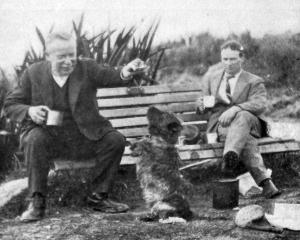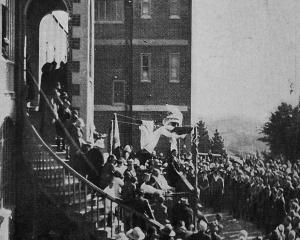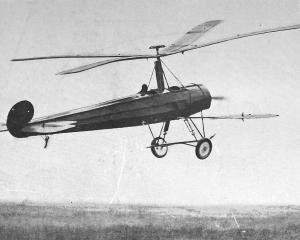A British officer who has just returned to base said: "The Germans were sighted at 3.30, and the fighting commenced at 3.50. Admiral Beatty hauled off to manoeuvre for a better position, while the Germans, knowing they momentarily possessed an enormous superiority, did not lose a moment. The big ships, at 10,000 yards, began pounding each other over a screen of destroyers, and shells were soon passing like a hurricane. The roar was deafening. Within two minutes misfortune overtook the British. A full salvo from a German Dreadnought struck the Queen Mary, finding a vulnerable spot. In a cloud of steam and a roar which rose like thunder the battle-cruiser blew up and was engulfed.
"Her commander, Sir Charles Blane, who only joined the Queen Mary in April, was killed by an explosion of shell before the vessel sank. His two brothers were killed in France. The loss of the Queen Mary was bad, but worse was to come. Fifteen minutes later the Indefatigable was sunk. Germany's sensational success was confined to her first salvos; her marksmanship deteriorated directly we replied. As the engagement proceeded the Germans' gunlaying was greatly inferior to the British . . . Clouds of steam and the flying masses of metal told how we were punishing the Germans, but the odds were overwhelming. The German commander sought to press his advantage, and ordered his destroyers to close with the flotilla. He paid dearly for his venture. We completely outpointed the enemy, wiping out several of their destroyers without sustaining a loss. Fighting continued at 25 knots. The sight was awesome. Shells were striking the sea and exploding as though in contact with a wall. We saw British destroyers buckle up and disappear. We passed bodies of mangled men, but it was impossible to spare a moment to succour the drowning. Four battle-cruisers, backed by some third-line ships, were now fighting the whole German High Seas Fleets, taking their toll of ship for ship, and manoeuvring for time until Admiral Jellicoe came up.
"Firing astern, the Germans tried to envelop us, but we avoided the trap. At 8.15 the Grand Fleet was seen on the horizon, and the Germans began to scamper home. Our war vessels, on returning to their east coast bases, were welcomed with great enthusiasm, and the wounded men were loudly cheered. One ship passed under the fire of 14 enemy ships. Her commander was wounded, but he stuck to his post until his vessel was docked. Official: No men are reported saved from the Indefatigable, the Defence, the Black Prince, the Tipperary, the Turbulent, the Nomad, or the Nestor. Numerous British and German bodies are being washed up on the West Jutland coast.
The first party of Natives from the mutton bird islands arrived at Colac on Thursday. They report a fairly good season, but the weather was boisterous. The birds left the islands a week earlier than usual. The rough weather would help them to get rid of their down sooner, and thus enable them to take flight. - ODT, 7.6.1916












